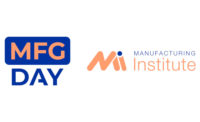TEMPE, AZ - Economic activity in the manufacturing sector was unchanged in July, while the overall economy grew for the 81st consecutive month, say the nation’s supply executives in the latest Manufacturing ISM Report On Business.
The report was issued by Norbert J. Ore, C.P.M., chair of the Institute for Supply Management Manufacturing Business Survey Committee. “In this month’s report, manufacturers indicate no change in overall business activity when comparing July to June. This continues a trend biased toward relatively minor contraction established more than 12 months ago. Manufacturing has maintained a reasonable level of activity during a period in which other sectors of the economy have been in recession. While the PMI indicates little to no change has occurred during this period, it would be hard to convince manufacturers who are faced with higher costs and uncertain demand that there is little change taking place.”
The six industries reporting growth in July - listed in order - are: Computer & Electronic Products; Petroleum & Coal Products; Food, Beverage & Tobacco Products; Primary Metals; Paper Products; and Chemical Products. The industries reporting contraction in July are: Plastics & Rubber Products; Wood Products; Transportation Equipment; Printing & Related Support Activities; Electrical Equipment, Appliances & Components; Machinery; Miscellaneous Manufacturing; and Fabricated Metal Products.
Manufacturing was unchanged in July as the PMI registered 50 percent, 0.2 percentage point lower than the 50.2 percent reported in June. A reading above 50 percent indicates that the manufacturing economy is generally expanding; below 50 percent indicates that it is generally contracting. A reading of 50 percent indicates no change from the previous month.
A PMI in excess of 41.1 percent, over a period of time, generally indicates an expansion of the overall economy. Therefore, the PMI indicates the overall economy is growing and the manufacturing sector is unchanged from June. Ore stated, “The past relationship between the PMI and the overall economy indicates that the average PMI for January through July (49.4 percent) corresponds to a 2.6 percent increase in real gross domestic product (GDP). In addition, if the PMI for July (50 percent) is annualized, it corresponds to a 2.8 percent increase in real GDP annually."
The data presented herein is obtained from a survey of manufacturing supply managers based on information they have collected within their respective organizations. ISM makes no representation, other than that stated within this release, regarding the individual company data collection procedures. Use of the data is in the public domain and should be compared to all other economic data sources when used in decision-making.
Get our new eMagazine delivered to your inbox every month.
Stay in the know with Quality’s comprehensive coverage of the manufacturing and metrology industries.
SIGN UP TODAY!Copyright ©2024. All Rights Reserved BNP Media.
Design, CMS, Hosting & Web Development :: ePublishing


